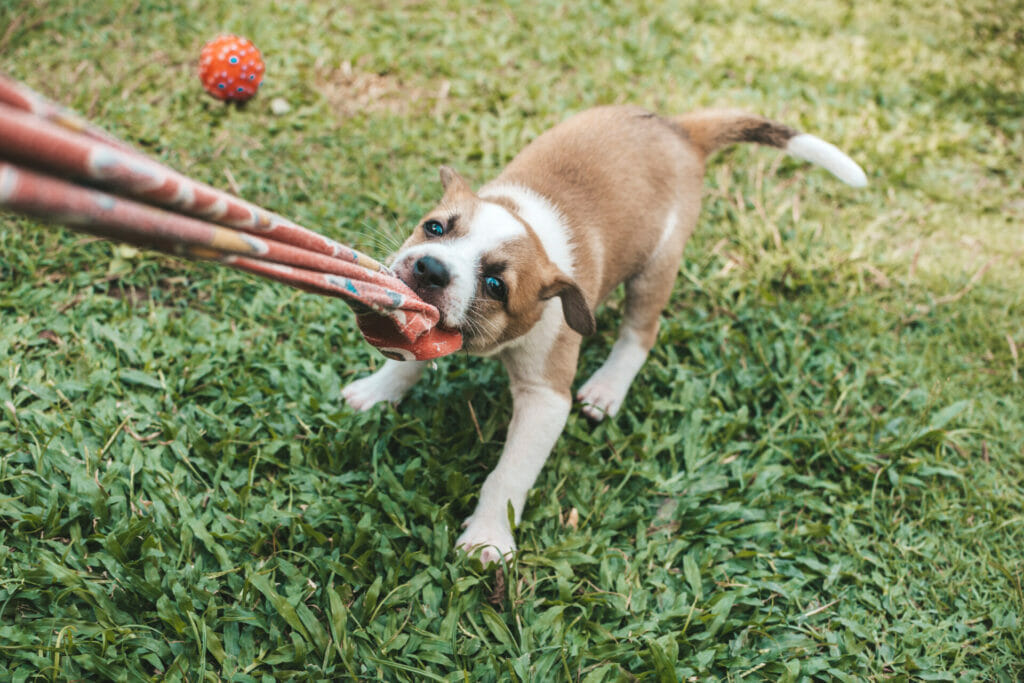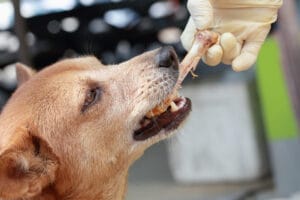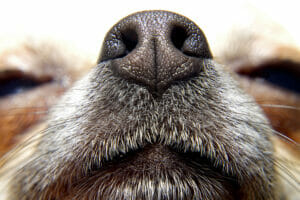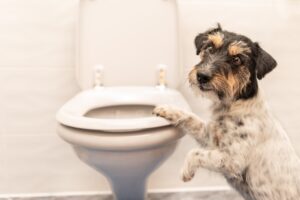We sat down with Trainer Devi Do CPDT-KA to discuss lapses in obedience and reactivity with puppies, why this is a normal stage of puppyhood, and her best tips on how to navigate this challenging period.
At what stage is it normal to see your pup showing lapses in obedience?
At 4 months, puppies are entering their pre-adolescence stage and begin exploring their environment more and start to test their boundaries. As they enter into adolescence, starting at 6 months, they will start having their own ideas and will seek out what gives them instant gratification. I often see reactivity starting between 8-11 months, which is on average when a puppy experiences a fear period. Fear periods can happen anywhere from 6 months – 1 year.
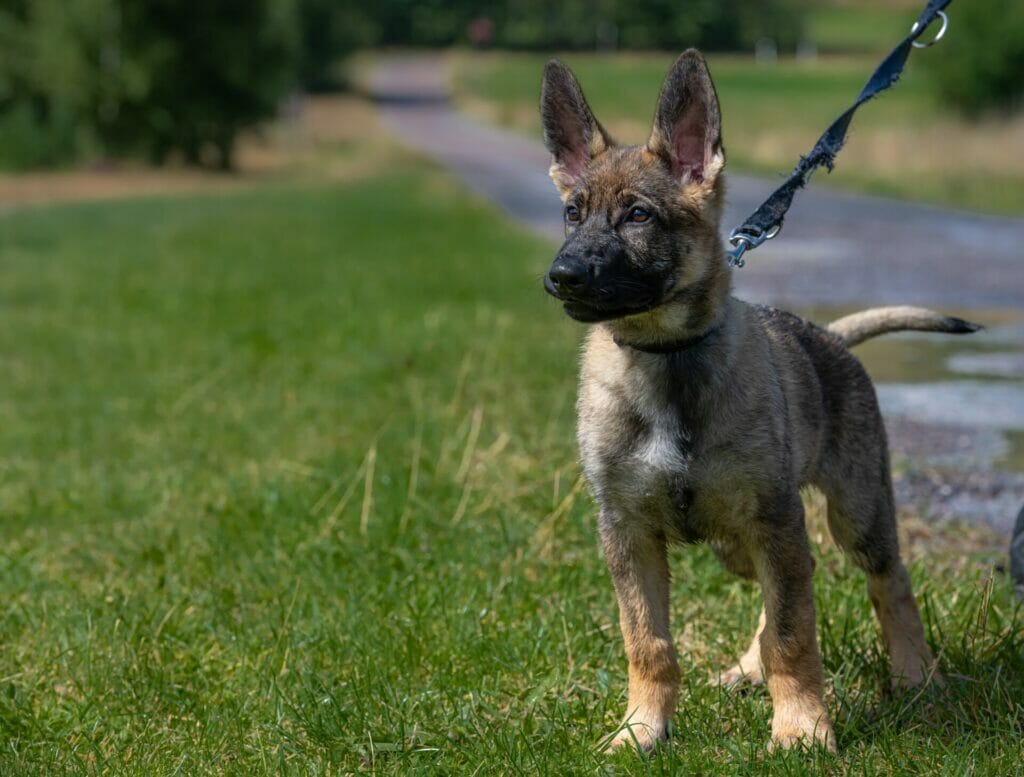
What might lapses in obedience look like/ how might it present in your pup’s behavior?
This may start with just a lack of response to their name or around their innate need to chew due to teething, which drives them to become more destructive. As they enter this stage in their development, adult dogs will be more likely to correct puppies for rude behaviors. Moving into 6 months, you’ll notice much less tolerance for frustration. There is also a higher need for stimuli, so distractions can easily overpower a training session. Reactivity due to frustration is also normal. Reactivity in the fear period can also emerge when your puppy experiences something new. During this period, they are more likely to produce a fight or flight response to something that might have previously been curiosity or concern.
What are some good actions to take to prevent this lapse in obedience / reactivity?
To prevent reactivity, it’s important to work on teaching dogs impulse control. Start teaching them to settle around all sorts of situations early on. For a frustrated pup who pulls at the end of the leash to greet another dog, create structure during walks by reinforcing the focus on you. Make sure you ask for your pup to sit and wait before releasing them to greet another dog. Oftentimes we allow puppies to run up to other dogs and people in hopes of socializing them as much as possible, but we end up creating an expectation that your pup is allowed to say hi whenever they want to. So as they age and you are no longer focused on socializing, they become confused and frustrated when they suddenly cannot greet every person/dog.
If a puppy starts to show concern with certain people or dogs, help them feel more comfortable around them and advocate for them if they do not wish to socialize. Learn what body language your puppy exhibits when they are stressed. Young puppies that have their space invaded time and time again can quickly learn that barking and snapping gives them space back. If they learn that they can move away if they feel uncomfortable and you reward them for showing curiosity, there is less of a reason for them to become reactive.
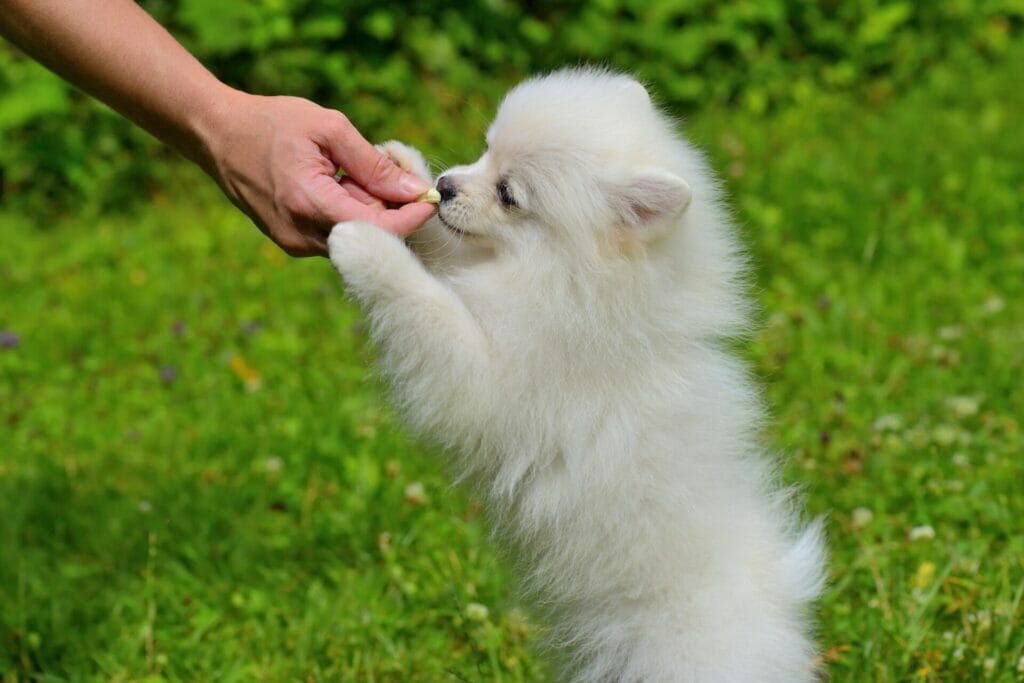
Know your dog’s top rewards (ex: toys, play, meaty treats) and be prepared to have to up the rate of reinforcement in situations where they need to be very focused on you. I recommend having indoor treats and outdoor treats. So the treats used indoors are lower value and the ones outdoors are much higher value. If a dog can get the same old treat back home, there’s little motivation for working for that treat when around new and interesting things.
What are your top three tips for managing this period of puppyhood?
Set your boundaries and create structure early on! It is much easier to continue reinforcing polite behaviors they’ve already learned than it is to teach your puppy new behaviors to replace the naughty ones.
Set your dog up for success by creating criteria you know your dog can meet. Follow through is very important, so avoid taking them into situations they have been known to ignore you without first practicing their cues in less distracting environments.
ADVOCATE FOR YOUR DOG. They can be very sensitive during this stage, so avoid forcing interactions if they seem stressed.
Are there some helpful things you can do as a pet parent to react in the moment?
Reactivity does not equate to aggression. At this age, reactivity is often from overexcitement or fear, where they are asking for space (in the wrong way).Dogs are not purposely being obstinate. They do what works! Your puppy is branching out and trying out behaviors to get the response they are looking for. So if your pup is not getting attention by playing on their own, they may try to bark at you and notice that it causes you to engage with them. Or if playing with their own toys doesn’t get a rise out of you, but grabbing items like socks and your shoes gets you on your feet and chasing them, they’ve learned how to initiate a game!
Anything we missed that’s important to touch on?
Creating a strong training foundation will make this stage easier, but it is rarely ever easy! Be consistent and be PATIENT! All puppy owners have gone through it, so you are not alone.


